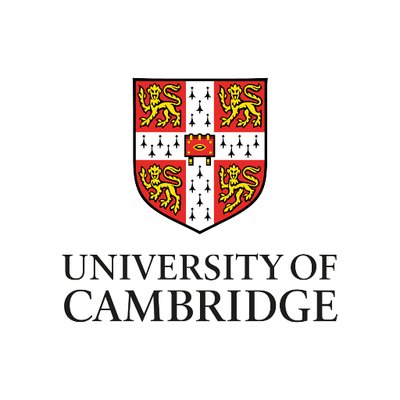University of Cambridge: Cambridge researchers awarded European Research Council funding
Five University of Cambridge researchers have been awarded Consolidator Grants from the European Research Council, the premier European funding organisation for excellent frontier research.
Cambridge received the most awards of any UK institution, alongside University College London, which also received five awards.
The Cambridge winners are among 313 winners of the latest round of Consolidator Grants, backed with some €632 million. Part of the EU’s Horizon Europe programme, this new round of grants will create an estimated 1,900 jobs for postdoctoral fellows, PhD students and other staff at 189 host institutions.
Dr Ana Cvejic from the Department of Haematology was awarded a grant for her CONTEXT project (Aneuploidy and Its Impact on Blood Development: Context Matters). The focus of her research is to understand how blood cells develop and how their development and their ultimate function is influenced by their environment and environmental cues. The aim is to use this knowledge to develop new ways to treat disease and improve human health.
Professor Nikku Madhusudhan from the Institute of Astronomy was awarded a grant for his SUBNEPTUNES project (Probing Exoplanetary Atmospheres in the Sub-Neptune Regime). His research is focused on the atmospheres, interiors and formation mechanisms of exoplanets. In 2021, he identified a new class of exoplanet, dubbed Hycean planets, which could greatly accelerate the search for life outside our Solar System.
Professor Ulrich Schneider from the Cavendish Laboratory was awarded a grant for his KAGOME project (A quantum gas microscope for the Kagome lattice). Schenider studies ‘many-body’ phenomena at the interface between quantum optics and solid state physics.
Dr Philippa Steele from the Faculty of Classics was awarded a grant for her VIEWS project (Visual Interactions in Early Writing Systems). Her research focuses on the relationships between Aegean writing systesm and the development of the early Greek alphabet.
Dr Laura Torrente Murciano from the Department of Chemical Engineering and Biotechnology was awarded funding for her RESTARTNH3 project (Energy functional processes and materials for storage of renewable energy in ammonia). Her research focuses on the integration of processes and development of novel catalytic routes for sustainable technologies.
President of the ERC Professor Maria Leptin said: ”Even in times of crisis and conflict and suffering, it is our duty to keep science on track and give our brightest minds free reign to explore their ideas. We do not know today how their work might revolutionise tomorrow – we do know that they will open up new horizons, satisfy our curiosity and most likely help us prepare for unpredictable future challenges. So, I am thrilled to see a new group of ERC grant winners funded for their scientific journey. I wish them the best of luck on their way to push the frontiers of our knowledge!”

